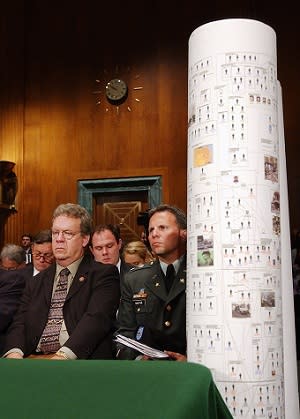 The Upshot
The UpshotPentagon wants to destroy copies of Afghan war memoir

Anthony Shaffer's "Operation Dark Heart" was published nearly two weeks ago, and the former Defense Intelligence Agency officer's book shot up Amazon's best-seller list Friday (to No. 4 at this writing). But Amazon users may not get their hands on the first edition, which is currently listed as "not in stock."
That's because the Defense Department is trying to buy back 10,000 copies of the first edition from Shaffer's publisher in order to destroy them. The New York Times reports that Shaffer's Afghanistan war memoir may contain classified information. The question of whether to permit the broader release of that information has "divided military security reviewers and highlighted the uncertainty about what information poses a genuine threat to security," the Times reports.
It's typical for intelligence agencies to look closely at such first-person war accounts to prevent the leaking of classified information. But it's uncommon for intelligence agencies to try buying — and disposing of — a book after its publication.
Times reporter Scott Shane explains how this unlikely scenario played out.
He writes: "Army reviewers suggested various changes and redactions and signed off on the edited book in January." Publisher St. Martin's Press set a release for Aug. 31. And for five months, publication appeared to be going as planned.
But in July, the Defense Intelligence Agency saw the manuscript and passed it along to various spy agencies. Then, Shane writes, "reviewers identified more than 200 passages suspected of containing classified information, setting off a scramble by Pentagon officials to stop the book's distribution."
Shane's sources say that the "disputed material includes the names of American intelligence officers who served with Colonel Shaffer and his accounts of clandestine operations, including N.S.A. eavesdropping operations."
The objection came too late, as copies were sent to book reviewers and some were sold online. The Times procured its own copy, in fact, via an online bookseller. Now, Shaffer's lawyers and the publisher are close to an agreement whereby the Pentagon can black out passages for a new edition slated to published Sept. 24. Both sides still need to work out a price for the thousands of copies of the book that are now sitting in a Virginia warehouse.
(Photo of Shaffer, right, next to an al-Qaida organizational chart at a 2005 Capitol Hill hearing: AP/Dennis Cook)
